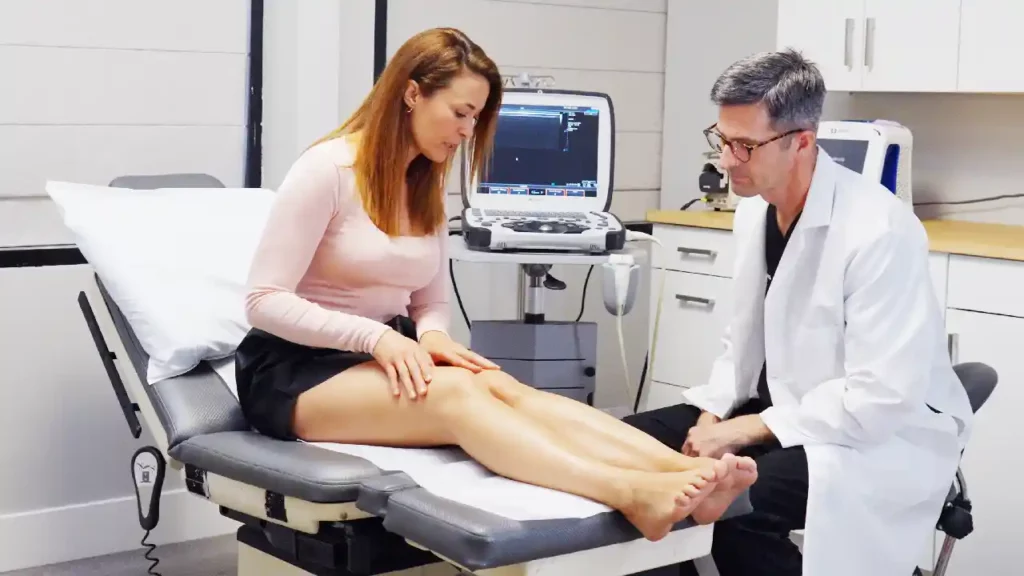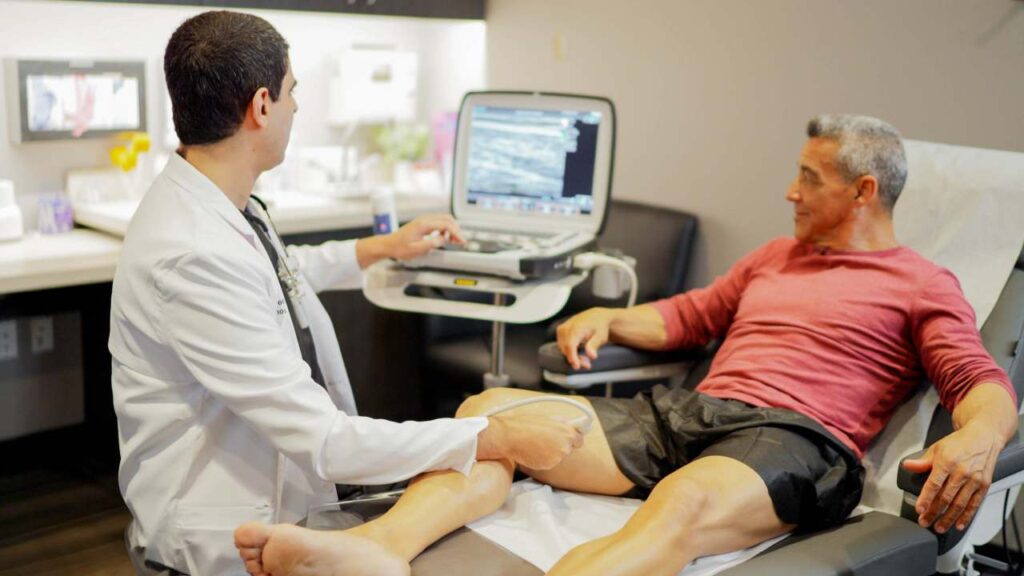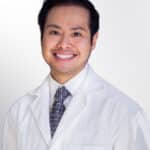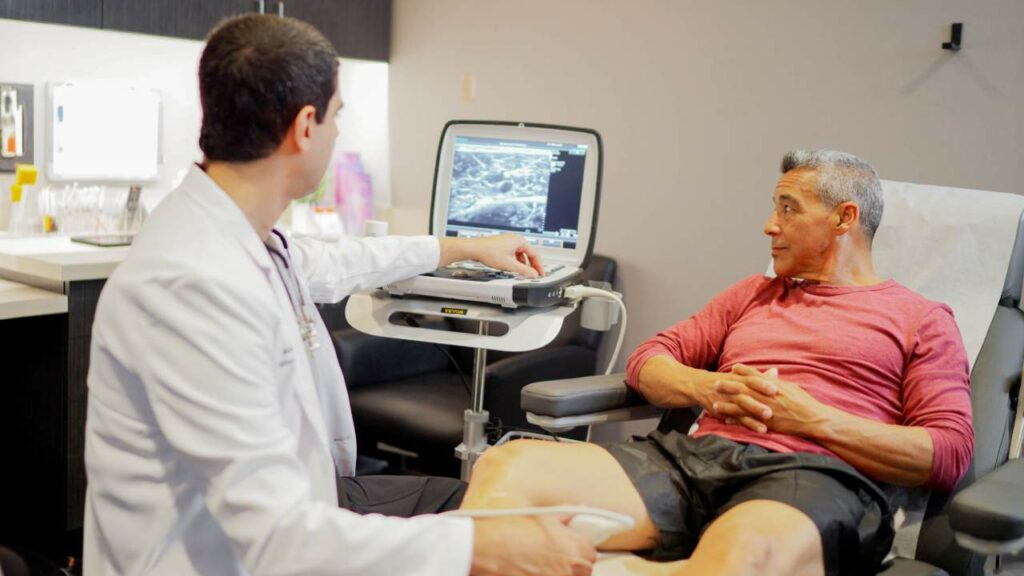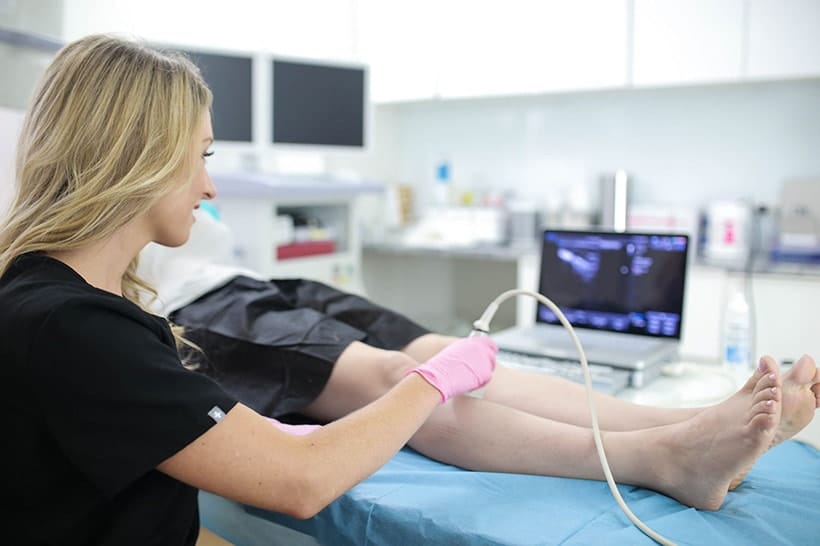Whether or not you require surgery for varicose veins depends upon the severity of the condition and your general health. For most varicose veins, surgery is not required. If caught early enough, doctors will recommend various at-home remedies such as compression stockings, regular exercise, and certain lifestyle changes to treat varicose veins. Doctors can also perform minimally invasive treatment procedures that can be done in an outpatient office such as sclerotherapy, VenaSeal, radiofrequency ablation, and varithena. Only if your varicose veins are so severe that these procedures don’t work will the doctor recommend surgery.
If you are looking for the right vein specialist for you, book an appointment with the best vein doctors in the best vein treatment center in California.
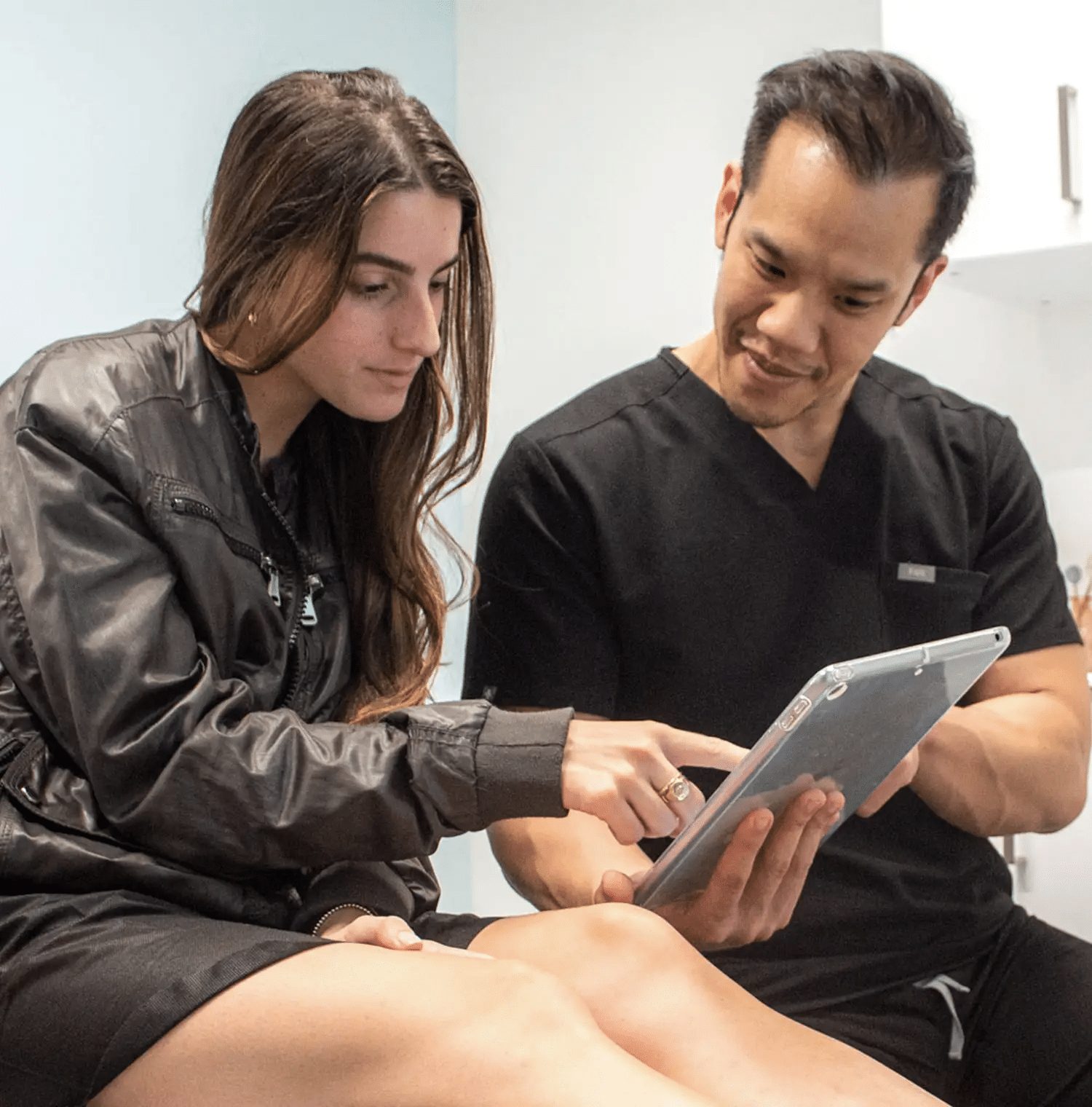
What is the best treatment for varicose veins?
There is no such thing as the ‘best treatment’ for varicose veins that works for everybody; treatment plan for varicose veins depends on the patient’s outcome goal, the severity of the disease, and the patient’s general health. Doctors may first recommend self-care at home for varicose vein treatment, such as the use of compression stockings, regular exercise, dietary changes, and avoiding standing up for long periods of time. If further treatment is required, vein specialists may perform minimally invasive methods such as the following:
- Sclerotherapy: Sclerotherapy is the most frequently used method of treatment of spider veins. An agent called sclerosant is injected into the diseased veins that causes the veins to stick to one another and close up. The veins are then absorbed by the body, clearing the skin.
- VenaSeal: VenaSeal is a minimally invasive medical procedure in which a bio-adhesive is applied on the diseased veins using a catheter, causing the veins to seal off. The procedure takes anywhere between 30 minutes to 60 minutes. Eventually, the veins are reabsorbed by the body.
- Radiofrequency Ablation: In this procedure, a numbing agent is first applied over the area where the veins are. Then, heat is applied using radiofrequency. The heat then stops blood flow in the diseased veins, and over time the veins disappear.
- Endovenous laser varicose surgery: In this laser treatment procedure, heat from a laser is applied to close or shrink the varicose veins. Endovenous laser surgery is a minimally invasive procedure that takes less than an hour and does not require hospital stay. You will be able to walk out of the hospital within an hour after the procedure is done.
- Varithena: Varithena is a micro foam sclerosant that is injected into the diseased veins. This is a non-surgical procedure that takes less than 60 minutes in which the diseased veins are closed down and eventually disappear. The recovery period for this procedure is also very short; the patient will be able to move about freely within an hour of the procedure.
If doctors feel that minimally invasive medical procedures aren’t suitable for you, they may recommend ligation and stripping. This is a surgical procedure performed under general anaesthesia in which the affected veins are surgically removed.
If caught early, varicose veins can be easily treated through minimally invasive techniques and its progress prevented through self-care. This is why it is important to see a vein specialist when early signs of varicose veins appear in order to avoid further future complications.
Does varicose vein treatment get rid of varicose veins permanently?
Current treatment options available cannot guarantee that varicose veins will be removed permanently. While existing varicose veins can be removed, varicose veins can return in up to 20% of patients after undergoing treatment. This can be because there is a family history of varicose veins, there is no change in lifestyle (i.e lack of exercise, smoking, work requiring standing up for long hours), the varicose veins have appeared on a different site, or the varicose veins were incompletely removed in the earlier treatment. Treatment of recurrent veins may differ from previous treatment, and needs to be discussed with the vein specialist.
How can I stop varicose veins from getting worse?
If you notice worsening varicose veins, the first thing to do is to book an appointment with a vein doctor. The doctor will assess your condition and determine its cause, and help you treat your condition accordingly. If the cause of your condition is lifestyle related, the doctor will recommend lifestyle changes that can prevent worsening varicose veins, such as regular exercise, avoiding sitting or standing for long periods of time, and changes in diet. The doctor can also recommend compression stockings to help with blood circulation in your legs and prevent further varicose veins from developing.
Best vein specialists in California
The Vein Treatment Center boasts a team of highly experienced vein doctors who are at the top of their fields, are double board certified and have all been trained at Ivy League universities. With cutting edge technology and world class medical infrastructure at their disposal, these doctors use the most advanced procedures to treat their patients. To top it all, our doctors know to keep patients’ comfort ahead and treat them with friendliness, patience, and kindness. Rest assured that our highly trained doctors will perform the diagnosis and treatment processes for your problems with utmost care and expertise, and their kind and approachable natures mean that your concerns and queries will always be heard.
Our vein treatment center at San Diego is currently located near the Torrey Pine beach state park, close to the Westfield UTC Shopping Center. In San Jose, our vein treatment center is located in a beautiful neighborhood near Palo Alto, Sunnydale, and Santa Clara. It is down the block from the Santa Clara Medical Center, and the Santana Row Shopping Mall.
